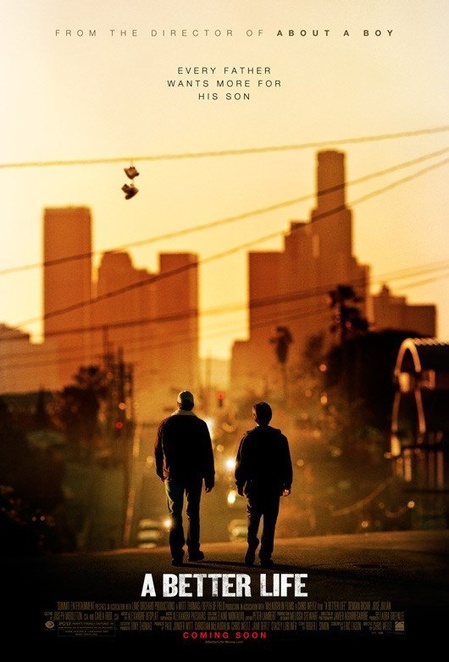
I can imagine no one more inappropriately suited to directing a film about the Latino immigrant experience in Los Angeles than the co-director of American Pie. Yet here is A Better Life, a film struggling to softly squish the trials and tribulations of being illegal in the United States in to the heart-warming story of a father and son bonding over a stolen truck, plopped on screen by none other than Chris Weitz, one half of the Weitz Brothers. Weitz has made, for the most part, strong films (About A Boy a highlight, New Moon a wincing low-light) and his involvement in A Better Life was what drew me to attend the screening, but the lack of understanding of his subject matter glares out from the bland, stereotypical screenplay and the film is never able to ascend its generic, surface level conceptual grasp.
Carlos Galindo
(Demian Bichir) is an illegal alien and single father
struggling to keep himself and his boy afloat on the meager
sums of an assistant gardener. His son Luis is a layabout,
precariously close to the dangerous world of gangs his
public school readily gives access to. When an offer comes
for Carlos to throw down some money and invest in a business
of his own (a gardening truck) he does, but the truck is
stolen, prompting a father-son dash across the city to find
the truck and realize just how much they love each other.
A Better Life is a soft film about a hard subject. It
certainly skirts the true hardships of existing in a country
as a class ghost - the inability to find solid financial
means, the lack of grounding for our youth, the toxic allure
of gang life - but Weitz can never seem to find any deeper
conclusions. Instead, A Better Life becomes a film
that wants to be about something more, but can’t draw itself
out of the teeth-rotting sentimentality that bogs it down.
|
